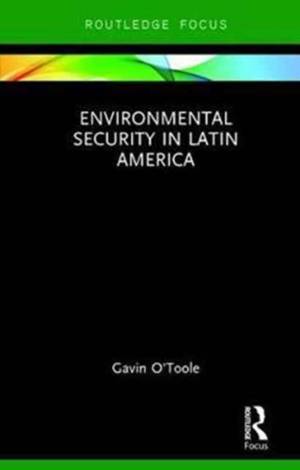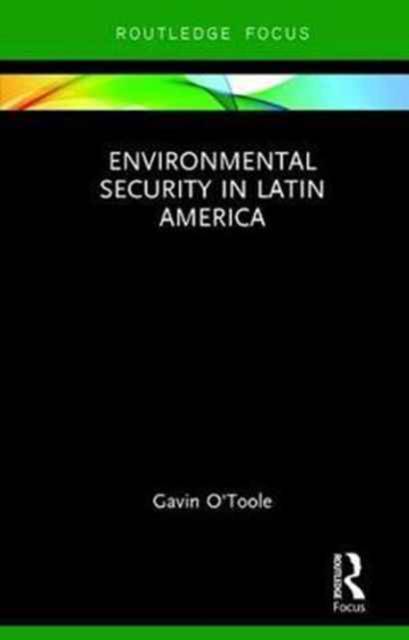
- Afhalen na 1 uur in een winkel met voorraad
- Gratis thuislevering in België vanaf € 30
- Ruim aanbod met 7 miljoen producten
- Afhalen na 1 uur in een winkel met voorraad
- Gratis thuislevering in België vanaf € 30
- Ruim aanbod met 7 miljoen producten
Omschrijving
This book examines security in Latin America through an environmental lens, at a time when this region faces a broad and growing spectrum of threats.
The book considers the backdrop against which security debates about Latin America have been conducted; the extent to which scholarship has been dominated by traditional US strategic concerns; and how, in the changing context at the end of the Cold War, some policymakers within Latin America itself at both national and regional levels began to reposition security. It argues that traditional security scholarship focusing on military defence and strategic affairs in this region is hard to explain and out of date, and offers reasons why a new focus on environmental threats within a broader human security perspective has much to offer this field. Such a focus is justified by the scale of the challenges that environmental degradation is posing in Latin America, and the very real impact of climate change there. The book considers how the various theoretical possibilities of the term 'environmental security' all have some potential application to this region, where the natural environment is rapidly being securitized by military forces on behalf of their states. Finally, it proposes that a fruitful approach to Latin America might be one where human and environmental security have parity.
This book will be of interest to students of environmental security, Latin American security, human geography and IR in general.
Specificaties
Betrokkenen
- Auteur(s):
- Uitgeverij:
Inhoud
- Aantal bladzijden:
- 146
- Taal:
- Engels
Eigenschappen
- Productcode (EAN):
- 9781138693784
- Verschijningsdatum:
- 23/05/2017
- Uitvoering:
- Hardcover
- Formaat:
- Genaaid
- Afmetingen:
- 140 mm x 216 mm
- Gewicht:
- 326 g

Alleen bij Standaard Boekhandel
Beoordelingen
We publiceren alleen reviews die voldoen aan de voorwaarden voor reviews. Bekijk onze voorwaarden voor reviews.











